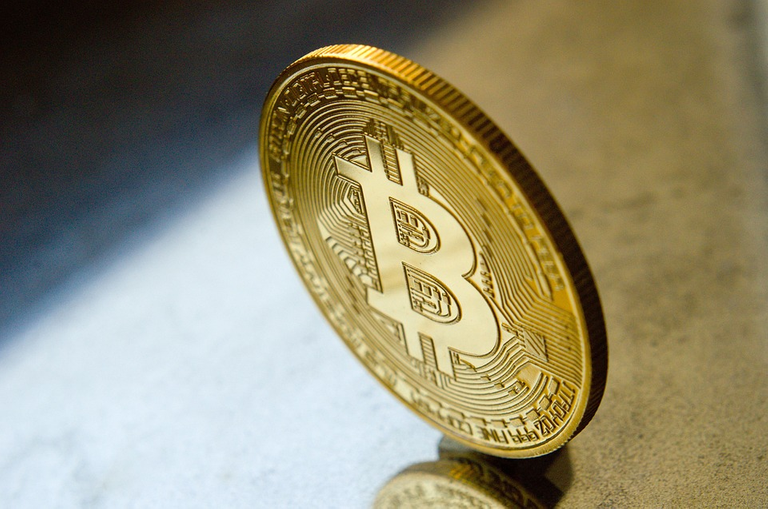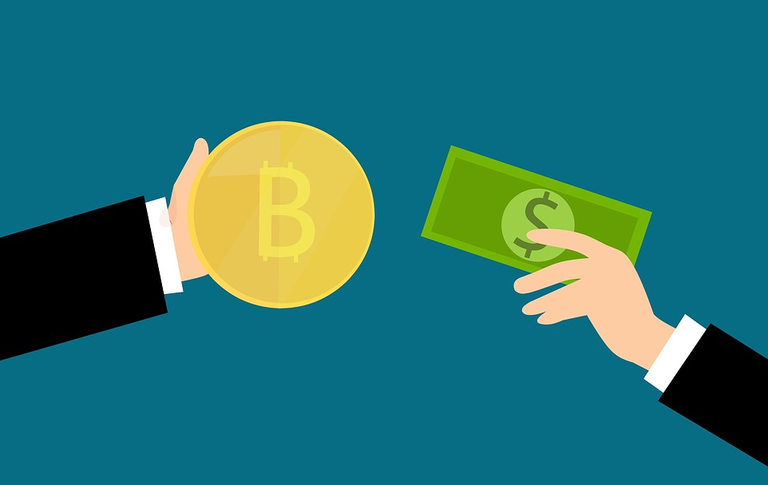Strengths and Weaknesses of Bitcoin and Traditional Banking
Bitcoin is without a doubt as a decentralized, digital currency that operates without the dependence on banks. Although the cryptocurrency has several strengths, it also has its share of weaknesses when compared to traditional fiat money. This brief post delves just a little into the strengths, weaknesses of Bitcoin and banks repectively.

Image Source
Bitcoin Strengths:
One of the significant strengths of Bitcoin is that it is decentralized, which means the currency is not subject to any governmental authorities or intermediaries. This decentralization ensures that the currency remains secure and cannot be manipulated by any central authority. Furthermore, Bitcoin is less susceptible to theft as traditional banks involve a centralization aspect, making them more vulnerable to hacks and theft.
Moreover, Bitcoin offers lower transaction costs that benefit both businesses and consumers, particularly in cross-border transactions. With Bitcoin, the need for intermediaries such as banks and currency exchanges is eliminated, which helps reduce transaction costs. This reduction in transaction costs makes Bitcoin particularly attractive to consumers looking to save on fees.
Bitcoin Weaknesses:
Despite Bitcoin being a decentralized currency, the downside is that transaction processing time is relatively slow, making it less efficient in comparison to traditional bank money. Because, its programmatic structure only processes a limited number of transactions at any given time, which can result in sluggish transaction times. In comparison, traditional bank processing systems operate within a split second.
Although in my opinion, second layer solutions (such as Lightnign Network) help to solve the issue of slow Bitcoin operations quite well, overall scalability is still lacking.
Another major issue that limits the use of Bitcoin as an everyday payment option is its limited acceptance rate. Bitcoin remains a new technology compared to traditional fiat money as such, with few merchants accepting cryptocurrency. Hence, even if the currency has lower transaction costs, its limited acceptance rate means that the currency is not yet fully adopted as a primary means of payment or global.

Image Source
Banks Strengths
Banks offer several advantages over Bitcoin, such as providing a safe and stable means to store funds. Although this is quite relative, because we are currently seeing how some of the most important banks in the US are failing resoundingly.
Unlike Bitcoin, which holds value chances, traditional money in a bank account guarantees interest payments as well as insurance coverage for deposits. This means depositors have some level of assurance that their savings are secure, which is vital in a world where financial uncertainty is widespread. Again, this is relative, it is what the theory says; because in practice we see how with banking crises, no one who has their money in the banks is completely safe about anything.
Furthermore, banks offer convenient and quick access to funds. With features such as credit and debit cards, transferring funds has become seamless, allowing people to access cash quickly and easily. With a vast network of ATMs and branches worldwide, banks have made it easy to transact from anywhere in the world, while also offering reliable customer service.

Image Source
Banks Weaknesses
However, banks come with their share of limitations, such as high transaction fees, particularly for cross-border transactions. Banks charge high fees to process international payments and often require several intermediaries to facilitate the transfer. These intermediaries increase the time required to complete transactions and total costs, making it expensive and cumbersome to conduct cross-border transactions.
Moreover, banks are vulnerable to security breaches and fraud, indicating that banks are not entirely secure from hackers' activities. Over the years, several high-profile breaches have resulted in banks losing customers' funds and sensitive information, which highlights the need for a better approach to security.

Image Source
In conclusion: Bitcoin or Banks?
With what is currently happening with important banking entities in the US, it is valid to ask ourselves if Bitcoin is safer than banks, or vice versa... Although I think the answer is very obvious.
For me the answer is clear; having my money invested in Bitcoin is the best option in my opinion, and that despite the current bearish scenario. The potential of Bitcoin as a means of payment and technology are practically unlimited, and as second layer applications are developed, Bitcoin's weaknesses are diluted.
And this will continue to be the case more and more in the future, until one day, Bitcoin has solved or neutralized all its inherent weaknesses, and is absolutely, completely and undeniably superior to fiat money in every way; and when that happens, or perhaps much sooner, the entire traditional banking system will collapse irretrievably.
I clarify that I am not a Bitcoin maximist, because I believe that fiat money will always exist in one way or another, but what I believe is that there will always be a means of payment that is predominant over most of the others. Currently it is the USD, but I think that over the years, BTC could take its place, without the USD ceasing to exist. That is to say, I believe that both BTC and USD will always exist together, and will only compete for the first place as a means of payment through the years.
All this that I have exposed in this post, are some important facts about banks and bitcoin, and in many cases, my personal opinions about it. So nothing written in this post is an investment recommendation for anyone, neither in Bitcoin, nor in anything else. You are solely responsible for what you do or don't do with your money, always remember it. If you want to invest in something, I recommend consulting a qualified investor or financial analyst.
What do you think about the topic discussed? Please comment.

Gif created by @piensocrates
Posted Using LeoFinance Beta